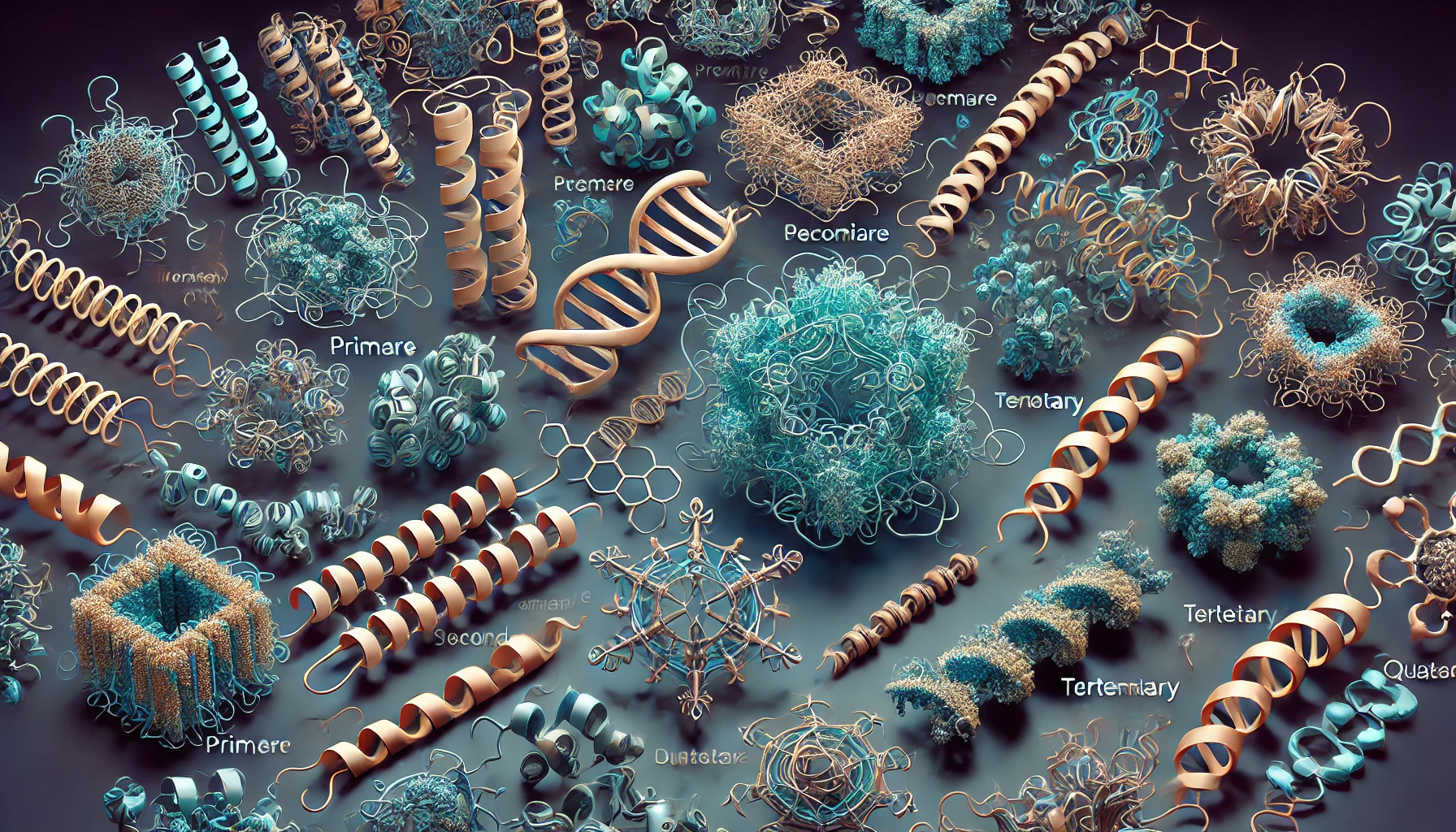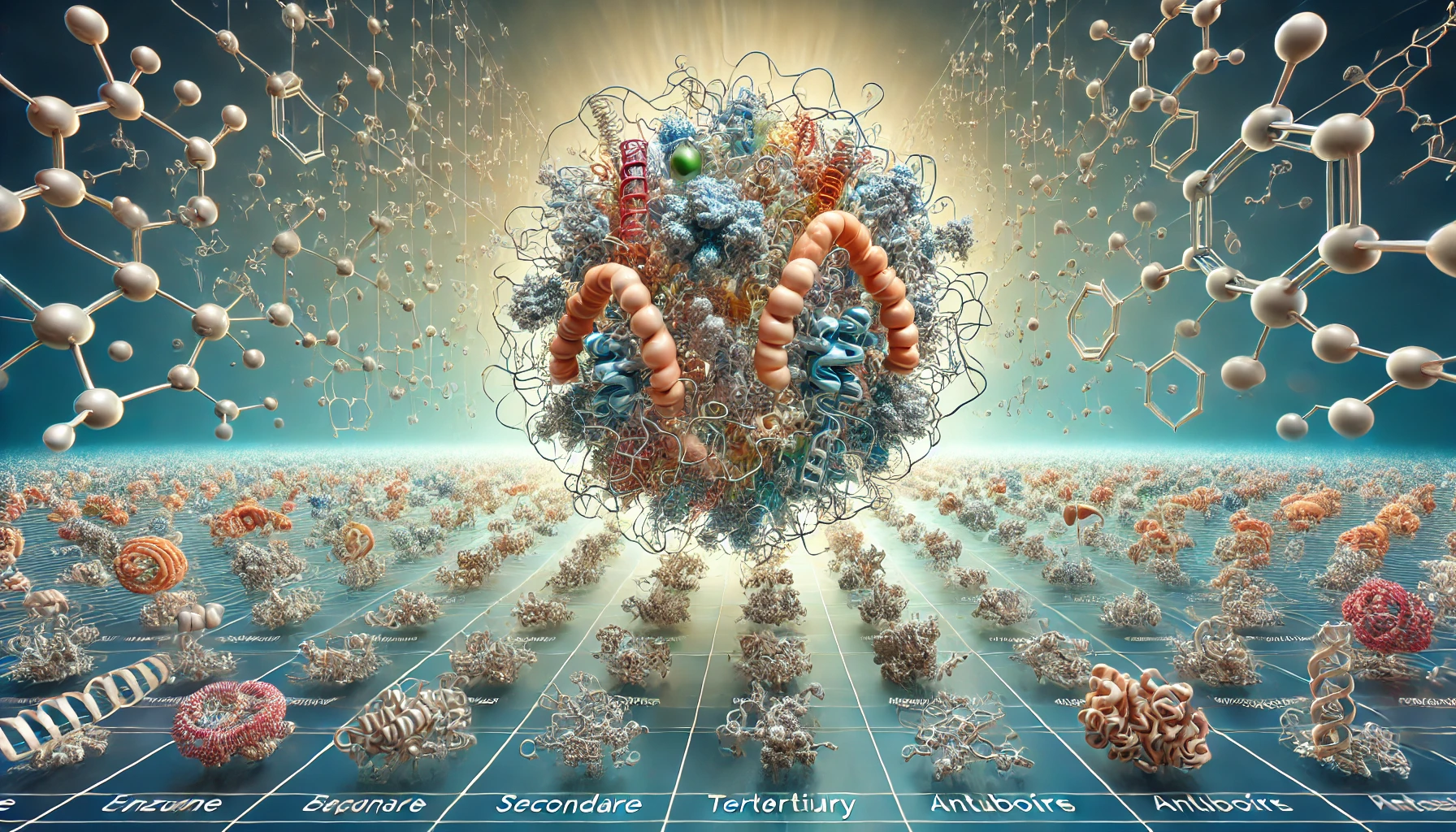Protein is one of the macromolecules that the body requires to grow, maintain, and repair itself. They are fundamental to many biological functions and are present in every cell of the body. In the context of building muscles, repairing tissues, or even producing enzymes and hormones, you cannot forget the importance of proteins for a person’s health.
- It proves to be useful in the form of an enzyme and hormone to control body functions.
- Proteins are food that supplies muscles with the requirement to build up and get strength.
- Protein may be of different types of which may play different functions in the body
- Understanding the structure of protein helps a person to ascertain the function of the protein
There are so many types of proteins, each serving a particular purpose in the body. Ensuring that the body gets enough food that is rich in proteins proves that it works appropriately. To seize an understanding of why protein is important, first one has to learn how it is structured and what variety of functions it could perform. Protein helps in building tissues or repairing them.
| GS Paper | General Studies III |
| Topics for UPSC Prelims | Protein types, Biomolecules |
| Topics for UPSC Mains | Structure of proteins, Enzymes, Functions of proteins |
What is Protein?
A protein is an amalgamation of various small building blocks, known as amino acids. Long chains of these amino acids are joined together and determine both the nature of the protein and the specific role that it has to play. There exist 20 different amino acids and the human body can synthesize some of them in its own system, while others that are called essential amino acids have to be sourced from food.

Why Proteins?
Proteins play a multitude of roles in the body. Here are some of the key functions of proteins:
Growth and Tissue Repair
Protein is the framework on which all cells, tissues, and organs are built. It promotes growth of cells, repairs tissues that are injured, diseased, or infected, and maintains general body structure. The human body cannot repair or replace worn-out tissues without sufficient proteins.
Enzymes and Hormones
Many proteins serve as enzymes that catalyze biochemical reactions important to living organisms, such as digestion and metabolism. Some hormones are proteins, in which insulin controls functions such as blood sugar. Their regulatory functions are very important in keeping a body healthy and balanced.
Muscle Building Foods
Intake of protein-rich diet would be essential to keep and develop the muscles. Proteins are beneficial to fix up muscles after exercises and enable the growth of the muscles to become strong; this is essential for athletes, bodybuilders, and people who participate in regular exercise activities.
Different Types of Unique Roles
There are many protein types: one of them, like collagen, acts as structural support; others, such as hemoglobin and insulin, work as enzymes, hormones, or antibodies. Each type of protein has its specific function that ensures overall health.
Types of Proteins
There are many classifications of protein based on the origin as well as the role played by this macronutrient in living organisms. Here is a closer look at the main types:
Complete Proteins
Complete proteins contain all nine essential amino acids in the correct amount that the human body requires. These are mainly sourced from animal products such as meat, poultry, fish, eggs, and dairy. Such proteins help increase muscle mass, repair tissue, and manufacture hormones and enzymes.
Incomplete Proteins
Those lack all the essential amino acids. These include plant foods such as beans, lentils, grains, nuts, and seeds. Though they can’t provide all the necessary amino acids on their own, many combinations of plant foods provide a complete amino acid profile; the classic example is rice and beans.
Structural Proteins
The structural proteins are the structural framework of cells and tissues in the body. Collagen is one such structural protein; it is embedded in connective tissues of the skin, bones, tendons, and ligaments. Keratin is another structural protein; it is an essential component of hair, nails, and the outer skin. It essentially maintains tissues and strength by supporting healthy integrity in the body.
Functional Proteins
Some proteins are functional, or they are enzymes, hormones, and antibodies that carry out various biochemical functions. For example, hemoglobin is a functional protein because it carries oxygen in the blood, and enzymes such as amylase facilitate digestion of food. These proteins have a significant role in regulating some of the body’s functions and fighting diseases.
Structure of a Proteins
The structure of a protein defines its function. Proteins have four levels of structure, and each level has distinct features, as listed below:
Primary Structure
It is the linear sequence of amino acids forming a protein chain. The sequence is determined by genetic coding and determines the final shapes and functions of the proteins. A tiny change in this sequence will drastically change the properties of a protein and hence its function within the body.
Secondary Structure
The secondary structure is the foldings of the amino acid chain into specific patterns including alpha helices and beta sheets. The shapes stabilize the protein by hydrogen bonds, contributing to the total stability of the protein. The secondary structure provides a backbone to most structural proteins, including collagen.
Tertiary Structure
The tertiary structure is three-dimensional form resulting from the interactions between the side chains, or R-groups, of amino acids. Such a complex shape determines ability to perform specific functions in proteins, such as binding with other molecules, or catalytic reaction. Thus, folding into a unique tertiary structure is necessary for enzymes and antibodies to function appropriately.
Quaternary Structure
Some proteins have more than one amino acid chain. The arrangement of several subunits that make up proteins into a functional unit is referred to as quaternary structure. A good example of a protein with a quaternary structure includes hemoglobin, which is in charge of transporting oxygen in the blood. By combining subunits, proteins are able to perform more complicated tasks within an organism.
Functions of Protein
Proteins are very versatile molecules, having a host of functions in the body. Some of the principal functions of protein include the following:
Building Blocks of the Body
Proteins form the very fabric of one’s muscles, skin, hair, and bones. They give the body, its cells, and tissues the necessary structural support so that the body feels firm and strong. Growth, tissue repair, and retaining muscles at their best cannot be done without enough proteins.
Enzymatic Activity
Enzymes are proteins that catalyze chemical reactions, accelerating essential activities in the body. They aid in digestion, metabolism, and energy production. For example, digestive enzymes break food molecules into smaller molecules that are more readily absorbed by the body and then used as energy.
Hormonal Regulation
Hormones are chemical messengers that regulate various functions in the body. Some proteins are hormones. For example, the protein hormone insulin, secreted by the pancreas, regulates the concentration of blood sugar; some hormones that affect the growth, metabolism, and reproductive processes are based on proteins.
Transport and Storage
Some proteins are responsible for transporting and storing vital nutrients. For instance, hemoglobin in red blood cells picks oxygen from the lungs and delivers it throughout the body to tissues. Some proteins store other essential minerals, for instance, ferritin, which stores iron.
Immune Defense
Proteins are essential to the immune system. They form antibodies, which are proteins that will identify and neutralize the foreign invaders in the body, such as bacteria and viruses. They thus act as the defense mechanism of the body, protecting the body against infections and diseases.
Sources of Protein
There are two main sources of proteins:
- Animal-Based Proteins: These include meat, poultry, fish, eggs, and dairy products. They provide complete proteins, containing all essential amino acids.
- Plant-Based Proteins: Legumes, nuts, seeds, soy products, and whole grains are examples of plant-based proteins. They are rich in fiber and other nutrients.
Both animal and plant-based proteins can contribute to a balanced diet. Including various protein-rich food options helps meet the body’s protein needs.

How Much Protein Do You Need?
The amount of protein one requires depends on age, gender, activity level, and overall health. In adults, the body requires about 0.8 grams of protein per kilogram of body weight. However, in athletes and sportsmen, they require higher amounts ranging from 1.2 to 2.0 grams per kilogram to enhance muscle growth and repair.
Protein in Muscle Building and Repair
Adequate amount of intake with proper protein amount assists in the growth and repair processes of the muscles. Exercise causes micro-tears in the muscle fibers. The restoration of these fibers by proteins will make them stronger as well as allow muscles to grow. The consumption of protein-rich food after exercise helps in maximum recovery and gain in muscles.
Protein and Weight Management
High-protein diets have often been associated with weight control. The protein will make one feel full for most part and thereby decrease the total calories consumed in return. It increases metabolism, which means it increases the burning of calories in your body as you digest this compound. Healthy weight maintenance and metabolic functions can be achieved through including protein rich food in meals.
Negative Effects of Low Intake of Protein
Failure to get adequate protein can lead to health complications such as
- Muscle wasting and weakness-Muscle requires proteins for maintenance and growth, and protein deficiency leads to muscle weakness and wasting.
- Weak immune system– Proteins facilitate the production of antibodies. It weakens the body’s ability to fight infections if present in low levels.
- Delayed wound healing– Proteins maintains tissue repair. Low protein could lead to impairment of a body’s ability to heal wounds and recover from injuries.
Protein Supplements
Supplements may be the easy solution for someone who can’t get their daily protein through the intake of meals. Among the protein powder supplements are whey, soy, pea, and many more which may quickly spike the levels of protein. It’s still advisable first to visit a healthcare expert to get proper supplements for his or her nutritional needs.
Conclusion
Protein is the nutrient needed by the human body for diverse activities. Knowing the different types of proteins, how it’s structured, and the various kinds of functions of proteins will give you enough ideas about what to do to take good care of your diet. The combination of one or more foods that are protein-rich in your diet can assure satisfaction of your body needs and thus also good health and well-being. Be it through muscle building, immune, or weight management, proteins go a long way in keeping a healthy life.
| Protein UPSC Notes |
| 1. Protein is an essential macronutrient needed for growth, repair, and maintenance of body tissues, found in every cell of the body. 2. Proteins are composed of amino acids, which link together in specific sequences to form various protein types, determining their roles in the body. 3. There are different types of proteins: complete proteins (contain all essential amino acids) and incomplete proteins (lack one or more essential amino acids). 4. The structure of proteins has four levels: primary, secondary, tertiary, and quaternary, which influence their functions and interactions in the body. 5. Functions of proteins include building and repairing tissues, acting as enzymes and hormones, and supporting the immune system through antibody production. 6. Protein-rich foods include animal sources (meat, eggs, dairy) and plant sources (beans, lentils, nuts). Variety ensures adequate nutrient intake. 7. Daily protein requirements depend on age, activity level, and health status. Generally, 0.8 grams per kilogram of body weight is needed. 8. Inadequate protein intake can lead to muscle loss, weakened immunity, and delayed healing. Sufficient protein is crucial for health and well-being. |



